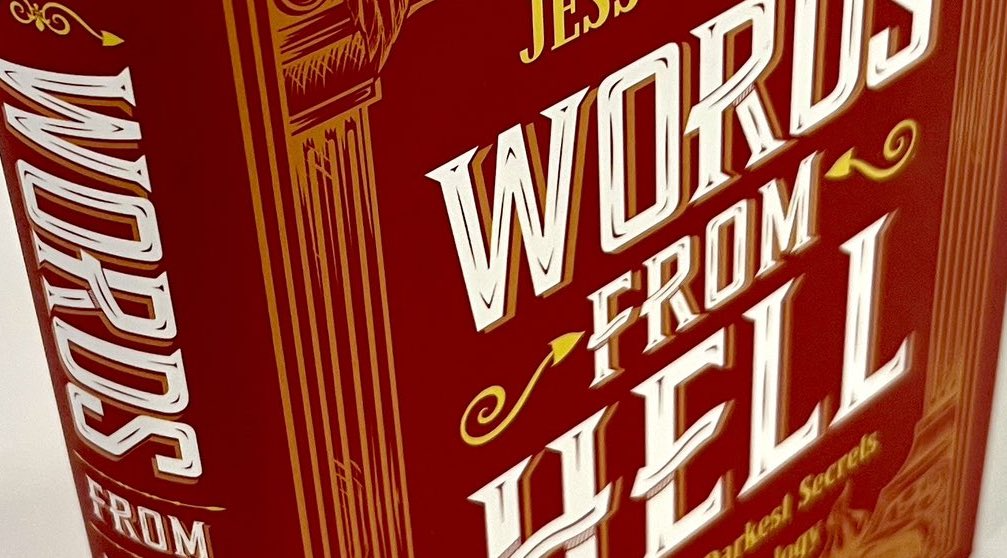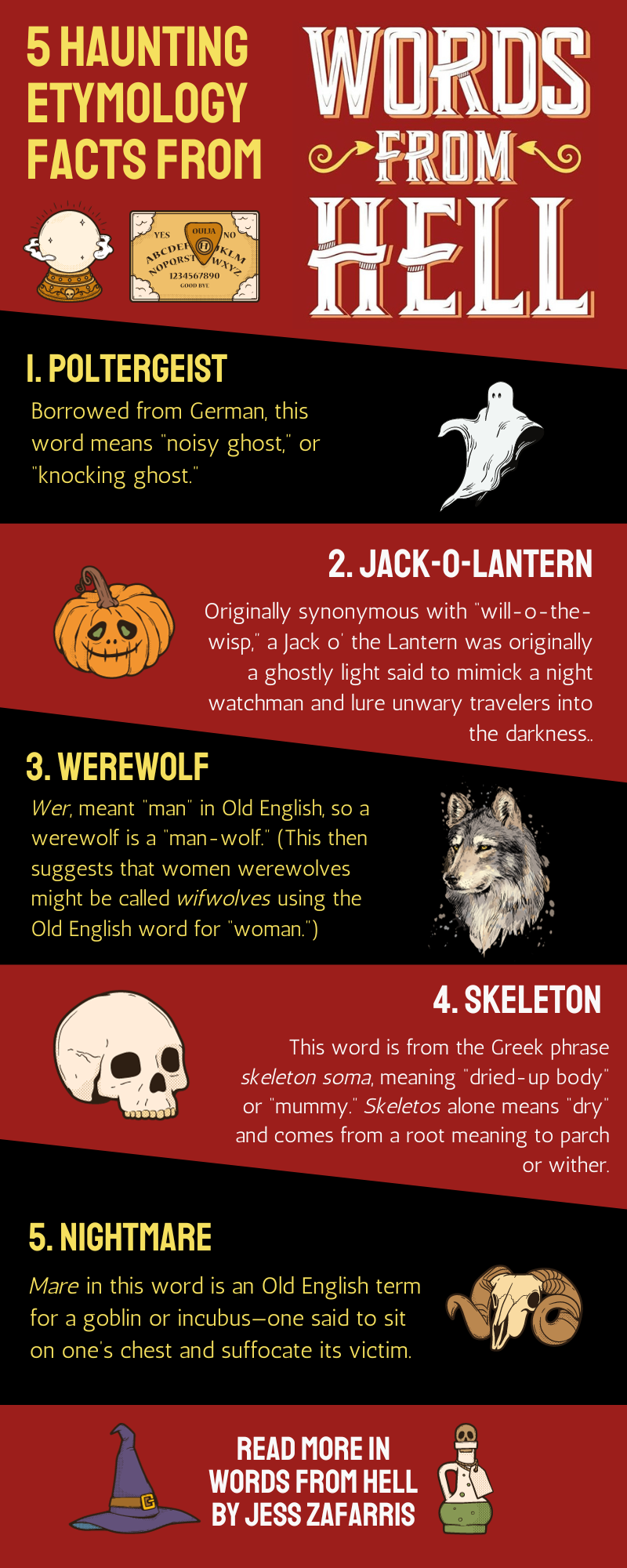Plus, 5 haunting etymology facts to celebrate the book’s Halloween release.
Something wicked—and wordy—this way comes.
Today, Oct. 31, 2023, a book brimming with festering filth and malicious monstrosities claws its way from the darkest recesses of human imagination.
And it’s nerdy as fuck.
Meet Words from Hell by Jess Zafarris. (That’s me, your guardian into the UnderWord.)
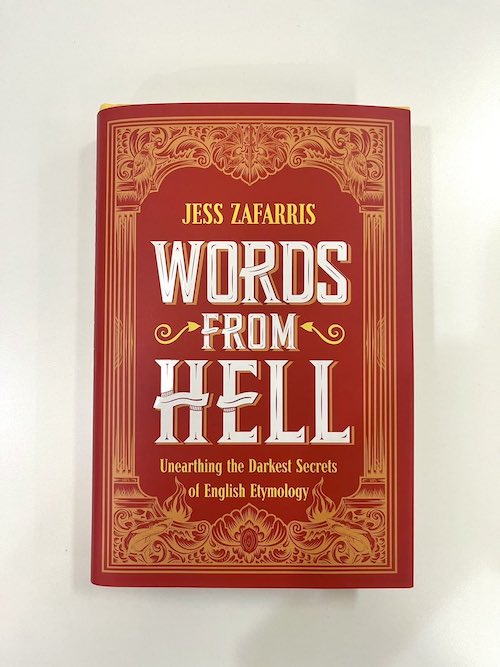
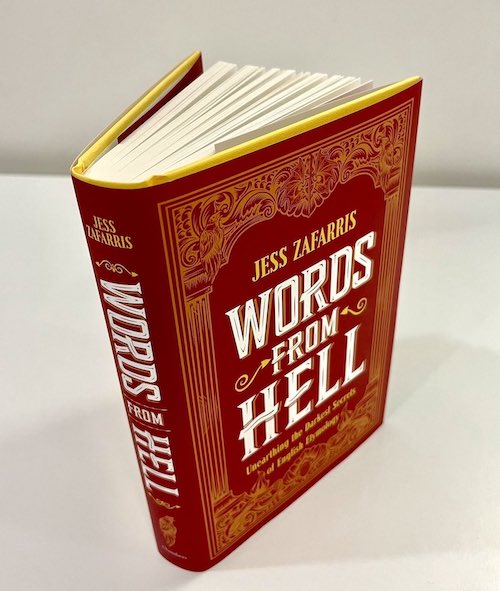
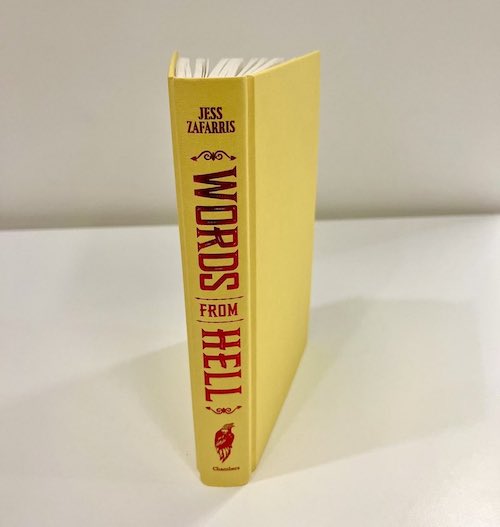
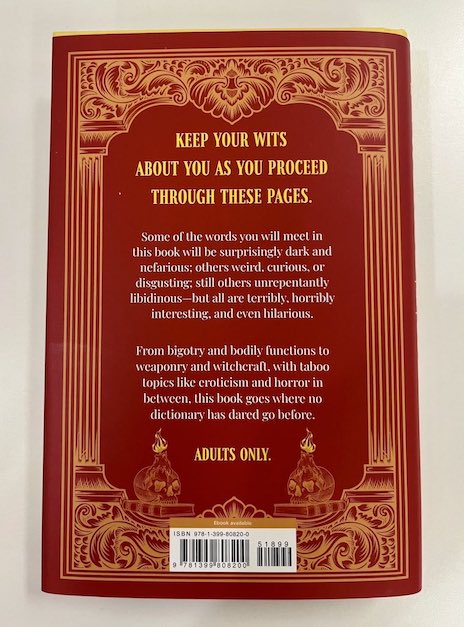
ORDER: Amazon • Barnes & Noble • Bookshop.org
About Words from Hell
The English language is where words go to be tortured and mutilated into unrecognizable shadows of their former selves. It’s where Latin, Greek, and Germanic roots are shredded apart and stitched unceremoniously back together with misunderstood snippets of languages snatched from the wreckage of conquest and colonialism. It wreaks havoc upon grammar and spelling. It turns clinical terms into insults. It turns children’s tales into filthy euphemisms. It’s sexist, racist, ableist and every kind of -phobic you can name.
Facing these terrors with rabid curiosity, this book, published by Chambers, goes where no etymology book has dared go before, exposing that sordid past, from bodily functions to the dirtiest insults, from war and weaponry to illicit substances.
This is an accessible, entertaining, and informative collection of etymology stories appropriate only for adults—though maturity is optional.
With an emphasis on understanding where the foulest terms in the English language came from—and the disgusting, hilarious and occasinally horrific histories behind them—this book demonstrates the true filth of our everyday wordslinging.
Dirty-minded diction dorks and lewd linguistics lovers will derive sick pleasure in leering at the origins of swear words, sexual lingo, inappropriate idioms, violent vocabulary, and terminology for bodily functions—not to mention the unexpectedly foul, biased and scandalous origins of words you thought were perfectly innocent.
If it’s inappropriate, stomach-churning, uncomfortable, or offensive, this book reaches into the dark recesses of its history and exposes them for all to see.
Get your copy: Amazon • Barnes & Noble • Bookshop.org
To celebrate its spooky release, enjoy a few haunting etymology facts that are explored in greater depth within the pages of Words from Hell.

